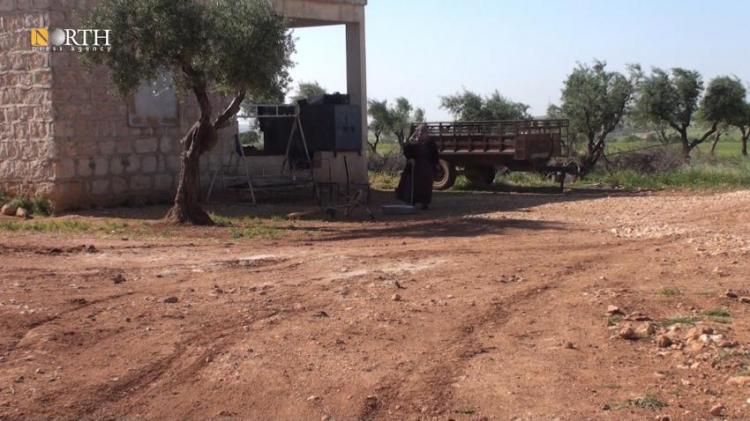Aleppo's northern countryside – North-Press Agency
Dejla Khalil
In a war-torn area where its residents were vulnerable to its effects, many people displaced from the Afrin region and the residents of Tel Rifaat and other villages and towns in the northern countryside of Aleppo reside in very difficult health and living conditions, amid fears that the area will turn into a hotbed of outbreaks of leishmaniasis and other diseases.
The World Health Organization says that leishmaniasis (Habat al-Sana) is often associated with migration and the movement of people with weak immune system to areas where the disease is transmitted. In addition, "Poverty increases the risk of leishmaniasis. Bad residential and health conditions in homes may increase the sites of sand fly reproduction, as well as access to humans.”
This is the case in the villages and camps of the northern countryside of Aleppo, which are inhabited by displaced families from Afrin. Medical organizations working there are unable to provide them with appropriate treatment.
Farida Ibrahim, an IDP from Afrin living in Tel Shaeer village in the northern countryside of Aleppo, said that three of her children have contracted the disease.
"We give them local and intramuscular injections, but the village is full of debris and dirt. I changed my residence three times two years ago, but my children have suffered again from new infections every year."
During last year, the region recorded about 2,000 cases until late August, while the number of infections since the beginning of the spring this year has reached 500, according to official statistics of the Kurdish Red Crescent and the Fafin medical clinic in 2019.
The situation is not different in the camps for Afrin IDPs, where the spread of the disease is concentrated in the Barkhwadan and Sardam camps, and in the city of Tel Rifaat and the villages of Tel Shaeer, Halsiya, and Babins in the northern countryside of Aleppo.
Sonia Hassan, a displaced woman who lives in Sardam camp, said she was unable to transfer her infected daughter to Fafin clinic and complete her treatment due to the quarantine imposed on the camp. "The infusions are not available in the camp and her condition is getting worse."
In a report published on the 2nd of March, the World Health Organization estimated the new cases of leishmaniasis worldwide at 700,000 to one million.
"The injections we receive are few, because Syrian government security forces prevent the entry of medicines into the region, so we delay the doses prescribed for the patient, causing the boil to re-irritate," said Majdoleen Zeno, an administrator at the Kurdish Red Crescent.
"We called on many international health organizations to provide assistance in fighting leishmaniasis two years ago, but we have not received any response or assistance from it," she added.

